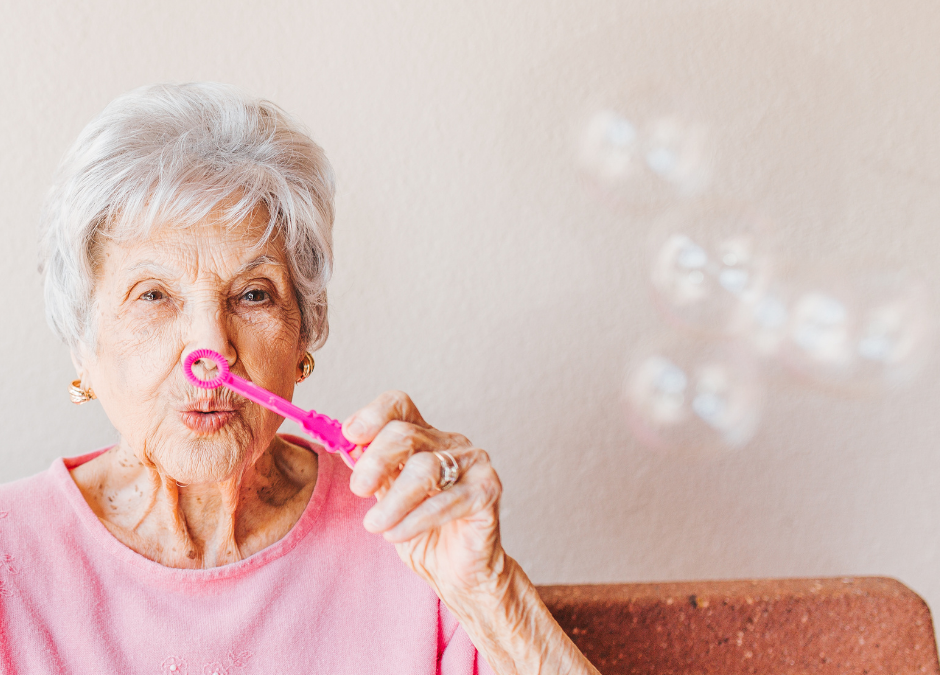Dementia refers to a set of symptoms that are linked with progressive neurological disorders. The most prevalent forms of dementia are Alzheimer’s (dementia brought on by the Alzheimer’s disease), vascular dementia (caused by damaged blood vessels in the brain) and dementia with Lewy bodies, or DLB, which is caused by protein build-up inside the nerve of the brain which negatively impacts brain cell communication. Dementia can be split into the categories of mild, moderate and severe; however, this can further be broken down into 7 stages and understanding these stages, and where your loved one falls within them can help you to ensure appropriate care and supervision is provided.
At Care24Seven we offer live-in care options that you can trust. We are an agency who carefully screen all our carers and ensure all the legal requirements are taken care of, giving you one less thing to worry about.
Stage One – No Noticeable Impairment
Someone with stage one dementia will behave completely normally. Changes to the brain will be happening at this stage but this can go on for years before any impairments become noticeable.
Stage Two – Minor Impairment
This is the early stage where symptoms will start to become apparent. Forgetfulness is a big indicator of early dementia; however, at this stage it can be difficult to distinguish between dementia-related forgetfulness and general age-related deterioration. At this stage dementia also wouldn’t be able to be confirmed through a medical exam.

Stage Three – Noticeable Cognitive Decline
This is the stage when those close to the person suffering from dementia will be able to pick up on the fact that something isn’t right. This can be a continuation of memory decline, as well as differences in behaviour and communication patterns. Indicators of this stage can be things like struggling with the names of people and objects, increased difficulty in social situations, misplacing items and a worsening of organisational skills and ability to plan. This stage can last about seven years.
Stage Four – Moderate Decline
At this stage forgetfulness will become more apparent along with difficulty with mental maths, remembering if food has been eaten and organising bills. At stage four there can also be changes in the mood; a person can become moodier and socially withdrawn. Stage four usually lasts around two years.
Stage Five – Moderate Severe Decline
This is when help with day-to-day activities will be needed. At this stage, it’s a good idea to look into care options for your loved one to keep them safe and able to live a fulfilling life. At stage five it may be difficult for a person with dementia to be able to dress or recall personal information; however, they will likely still recognise people and be able to remember childhood events. This stage usually lasts around one and a half years.

Stage Six – Severe Decline
Constant supervision is necessary at this stage. Confusion can cause your loved one to become angry and aggressive. Someone in stage six will likely need help staying clean, feeding themself and using the toilet. It can also be difficult for someone at this stage to recognise people close to them. A person will usually be in stage six for two and a half years.
Stage Seven – Very Severe Decline
At this stage responding to the environment becomes difficult to impossible and communication is extremely limited. Someone with stage seven dementia will struggle with day to day living such as eating and drinking and will require professional care.
If you have a loved one who is suffering from dementia it can become extremely difficult to look after them, not only in terms of the time needed but also the best way to deal with mood and behavioural changes which can be emotional for the family. Dementia live-in care is a good way to keep your loved one safe without having to move them out of the familiarity of their own home which in some cases can cause further confusion and anxieties. At Care24Seven we offer free consultations so we can work out the needs of your loved one and make sure they have the most appropriate level of care. For round the clock care and to help your loved one stick to their normal life and routine as much as possible contact our team today.
